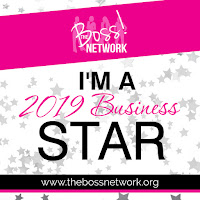Is Your Business Excellent? By Aundrea Y. Wilcox
Before I let you answer that, we should define what is “excellent.” According to Merriam-Webster, excellent is “very good of its kind: eminently good: FIRST-CLASS: SUPERIOR.” So, I ask you again … is your business first-class?
When we talk about being excellent, it means throughout the organization. We’re talking about the whole business, not just one or two so-called most important areas. How do you rate your business in terms of Leadership? And how about in terms of Strategic Planning, Customer Focus, Measurement and Analysis, Workforce Focus, Operations Focus and Results?
Recently, I had the pleasure and privilege of attending expert training with the Tennessee Center for Performance Excellence (TNCPE), in order to be an examiner who is responsible for reviewing and evaluating organizations that apply for a TNCPE State Quality Award. During the three-day intense training program, we learned how to use a variety of evaluation techniques, but I will briefly mention ADLI, which refers to Approach, Deployment, Learning, and Integration.
To practice, we applied this method of evaluation to a particular case study. As we compared the case against the criteria for performance excellence, we found many shortcomings. In some instances, the bogus applicant could show a systematic Approach (methods used) to ensuring excellence, but could not prove the approach was at work companywide. In other words, Deployment was weak and consistency was lacking. Or, there was no evidence of innovation and refinement of procedures and processes based on close analysis. Seemingly, the company simply put a process in place and quickly moved forward without looking back. Therefore, there was no Learning. During training, we also gained a clear understanding of effective Integration—how well a company’s approach is aligned with its organizational needs. In organizations with many departments, for example, is the performance management system operating as a fully interconnected unit, or are measures and information used for planning disorganized and disjointed?
These are fair assessments you will have to make if you want to consider your business an excellent organization. Do you do what excellent organizations do? Do you honestly identify your weaknesses and devise plans (and execute them) to address them? Do you have a disaster plan? Is your business easy for customers to do business with? Have you developed goals and objectives that are linked to your vision and challenges that you will face in the future? Do you collect data about your competitors and your industry and use your findings to create competitive advantage? These are just some of the things that excellent organizations do.
Excellence doesn’t just happen. You have to work at it. And once you achieve it, you have to do more than maintain it. You can work towards achieving excellence with the right leadership, regular periodic strategic planning sessions, customer focus, meaningful and appropriate measurement and analysis, workforce focus and engagement, operations focus and results. It’s not an all-or-nothing proposition. Excellence is a continuous journey.
Aundrea Y. Wilcox is also the author of the new book, Startup Savvy: Strategies for Optimizing Small Business Survival and Success. To connect with Aundrea, follow her on Twitter @StartupSavvy, and Like her Facebook Author Page, StartupSavvy. Visit startupsavvy.biz for more insights and tips about small business ownership and management.

.jpg)



Comments
Post a Comment